http://www.cnn.com/2015/12/07/asia/china-beijing-pollution-red-alert/
Smog in China closes schools and construction sites, cuts traffic in Beijing
Story highlights
- Beijing issues its first red alert as air pollution hits hazardous levels
- The red alert for pollution is the highest level in the system
- Residents tell CNN how smog is affecting their day-to-day lives
Beijing (CNN)Much of the Chinese capital shut down Tuesday after Beijing’s city government issued its first red alert for pollution, closing schools and construction sites and restricting the number of cars on the road.
Beijing’s Municipal Bureau of Environmental Protection warned that severe pollution would affect the Chinese capital for several days, starting Tuesday morning.
According to the U.S. Embassy in Beijing, the air quality index stood at 250 Tuesday morning, classed as “very unhealthy” and 10 times higher than the World Health Organization’s recommended levels.
Gao Yuanli, 35, told CNN that the smog often made her life difficult.
She wears face masks on most winter days, and she bought an air purifier two years ago, she said.
“I can’t go out on weekends now if the air is bad, and I don’t go to outdoor markets anymore,” she said.
The alert means extra measures will be enforced.
Car use is being cut in half by having only odd- or even-numbered license plates on the road at any one time. Heavy vehicles, including garbage trucks, are banned from the streets.
Other polluting industrial activity has been curbed, as have fireworks and outdoor barbecuing.

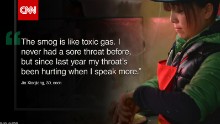
The city’s roads and sidewalks were much quieter than usual Tuesday, and small-business owners like Jia Xiaojiang, who makes egg pancakes, complained of fewer customers.
Jia doesn’t wear face masks but says the pollution has caused her respiratory distress.
“The smog is like toxic gas,” she said. “I never had a sore throat before. Starting from last year, my throat hurts once I speak.”
Disruption
The red alert caused disruption for some parents, who had to scramble Monday evening to find alternative childcare arrangements. Li Ning, a 33-year-old IT worker, said his child was being looked after by grandparents.
CNN reporters in Beijing said the pollution didn’t feel as severe as last week, when air quality, as measured by the U.S. Embassy, went above 500 or “beyond index” Monday and Tuesday.
Some residents have questioned why the unprecedented red alert level was not issued then. But others are resigned to living with pollution that is regularly 10 times worse than recommended levels.
“I’d find a day when the sky is blue unusual,” said Wolf Hu.
He travels often for work, often preferring China’s high-speed rail network to flying, which is prone to smog-related delays — 12 outbound flights and 14 inbound flights into the city were canceled Tuesday.
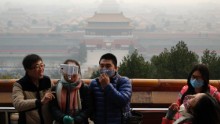
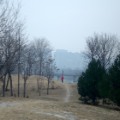
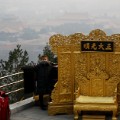
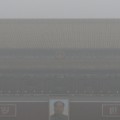
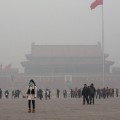
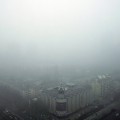
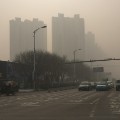
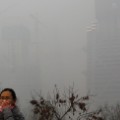
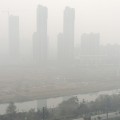
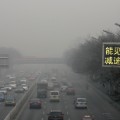
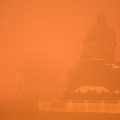
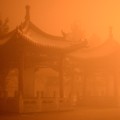
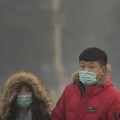
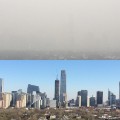
According to the state-run news agency Xinhua, a red smog alert is issued only when heavy pollution is expected to last longer than 72 hours.
China is the world’s largest emitter of greenhouse gases. It aims to cut is peak emissions in half by 2030.
Most of the country’s carbon emissions come from burning coal to heat homes and fuel power plants, a practice that spikes during winter months.
Can China’s most polluted city lead a green energy revolution?
CNN’s Tim Hume, Bex Wright, Vivian Kam and Beijing intern Guanghong Hu contributed to this report.



 International
International

